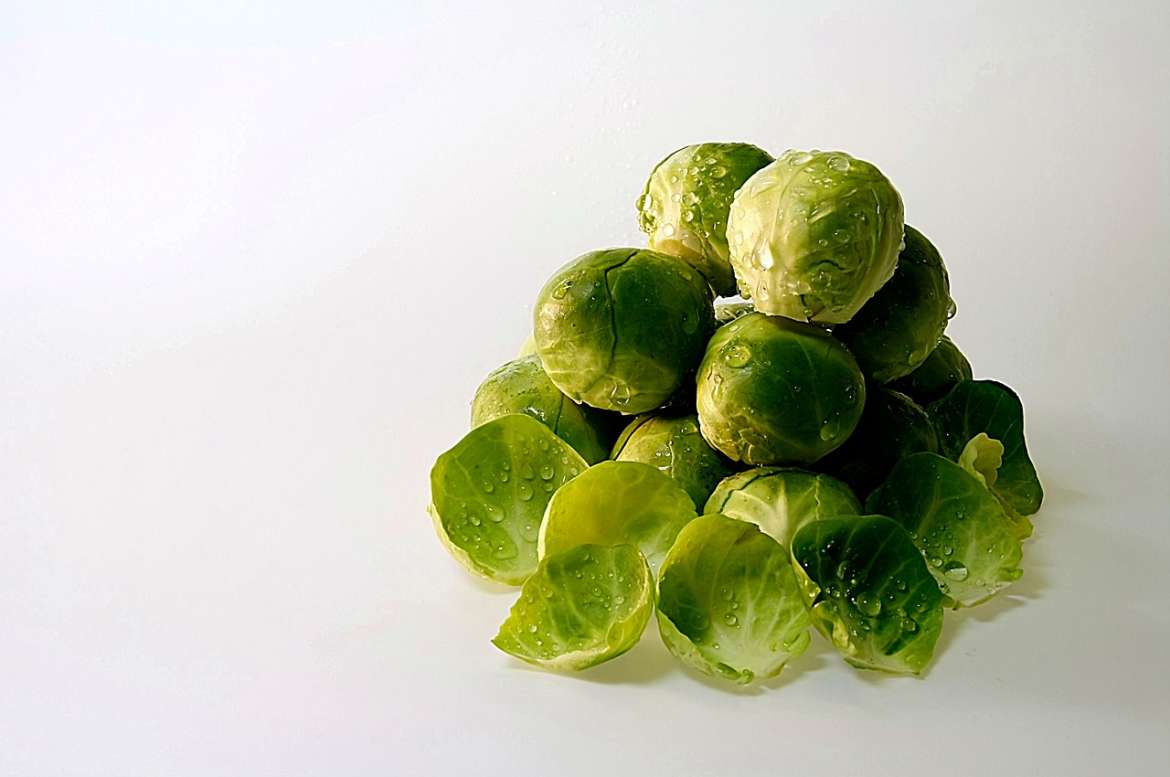Nutrient Overview
Calories: Low
Protein: High
Fat: Low
Saturated fat: Low
Cholesterol: None
Carbohydrates: High
Fiber: High
Sodium: Low
Main vitamin: Vitamin A, folate, vitamin C
Main mineral: Potassium, iron
Health Benefits
Brussels sprouts are a good source of vitamin A and vitamin C. It’s also high in fiber, which will aid in your digestion. Similar to broccoli Brussels sprouts also suppresses the development of precancerous cells.
This is done through its high sinigrin content which also gives it its characteristic smell. Research suggests that brussels sprouts are probably best for preventing colon and prostate cancer.
Buying & Storing Brussels Sprouts
You want to buy heavy and compact heads with bright, dark-green leaves. They should be sold loose so you can pick the sprouts one at a time. Make sure to avoid yellow or soft sprouts, as this is a sign of age. The same goes for sprouts with holes in the leaves, where insects were faster than you.
You can keep in the refrigerator, but they are most nutritious if eaten soon after harvesting. Store them in a plastic bag or covered bowl to protect them from moisture loss.
How To Prepare Brussels Sprouts
You can put the sprouts into salted cold water to flush out any small bugs hiding inside. After that, trim them and remove any yellow leaves or leaves with holes. Don’t throw away the darker leaves.
They contain the most vitamin A. Before cooking, cut an X into the stem end of the sprouts. This allows heat and water in and will cook the sprouts faster.



